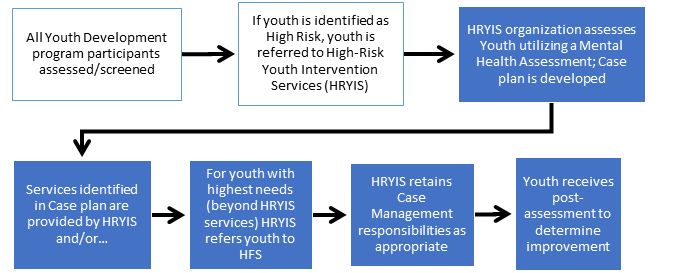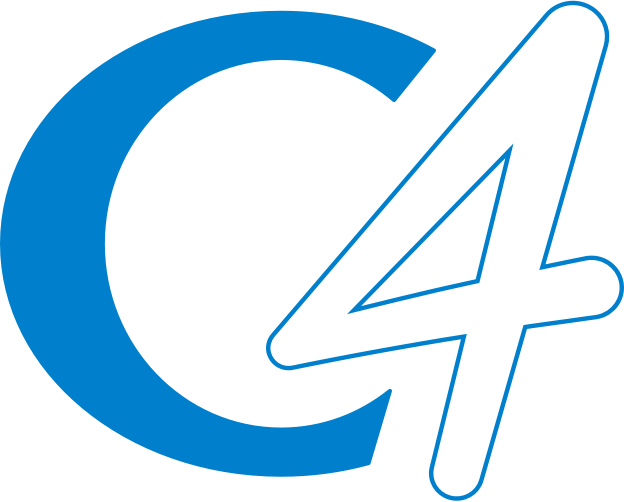Blog
Reframing ‘High Risk’: Understanding C4’s High Risk Youth Intervention Services
Since the onset of the COVID-19 pandemic, the already substantial economic and social challenges young people and their families face have become even more staggering — physical and mental health concerns, unemployment, education loss, mass death, and social support disruption have all worsened. These increasingly challenging circumstances can lead to direct and vicarious trauma through frequent exposure to violence and involvement in the legal system. This pervasive trauma ultimately contributes to a “high-risk” environment and exacerbates the rise in firearm violence, particularly among teens and young adults.
The Reimagine High Risk Youth Intervention Services (HRYIS) grant is funded through the Illinois Department of Human Services as part of the Reimagine Public Safety Act. HRYIS has the aim of providing “high-risk” youth with intervention services that reduce involvement in the legal system, increase school attendance, and refer young people to longer-term therapy. The program’s long-term goal is the development of holistic social and economic support systems that will, in turn, reduce instances of firearm violence among teens and young adults.
As an HRYIS awardee, C4 operates within a network of other health providers and youth development programs – including Children’s Home & Aid, Metropolitan Family Services, and Mount Sinai Hospital – to expand service offerings in new settings. These collaborations connect youth and families in the HRYIS target areas with mental health resources through groups, individual support, or community events.
Despite the resources that have been committed to the cause, the work of expanding mental health services in these areas remains highly stigmatized. Crystal Swenson, the program supervisor, wants to challenge the narrative surrounding the young people the state has labeled “high risk.”
“The terminology of ‘high-risk youth’ gives you this bias about these kids,” she said. “The language from the state makes it seem like we’ll triage these really high-level cases of kiddos who have been in the legal system or actively involved in gangs, or that we’ll be working with the ‘toughest of the tough.’”
While services are being made available to the intended population, many of the youth clients C4 engages through the program are identified as candidates for intervention before they have experience with firearm violence. Others receive support following having been personally affected. Preventative work of this nature is critical to provide individualized support for youth that fosters positive connections and addresses underlying socioeconomic factors before gun violence and its associated activities feel like the only solution.
C4’s intervention services include evidence-based assessment, comprehensive case management, and trauma-informed therapy and counseling. Assessment results are shared with the youth so a case plan can be developed collaboratively; young people decide which areas of their lives they want to begin to address and are informed that they can set realistic goals that can create momentum for change.

(Illinois Department of Human Services)
Changing the terminology used to refer to the work may not be easy, Swenson says. She considers “at-risk” slightly better than “high risk,” but doesn’t feel that affixing any generalizing labels to her clients is constructive. For now, she adds, saying “youth more likely to experience gun violence in their community” – rather than “at risk youth” or “high risk youth” – could be a solution.
“I’m hoping to do the work without further stigmatizing clients, whether that be through the language that we use or the way that we communicate their needs to other people,” she said. “One thing we’ve really focused on is not just saying, ‘Oh, these are the highest risk kids.’ We offer support to whoever needs it, regardless of whatever level they’re at.”
C4 constantly strives to improve our capacity to deliver quality behavioral health services to youth across the city. Invest in progress by supporting our cause with a meaningful donation.



